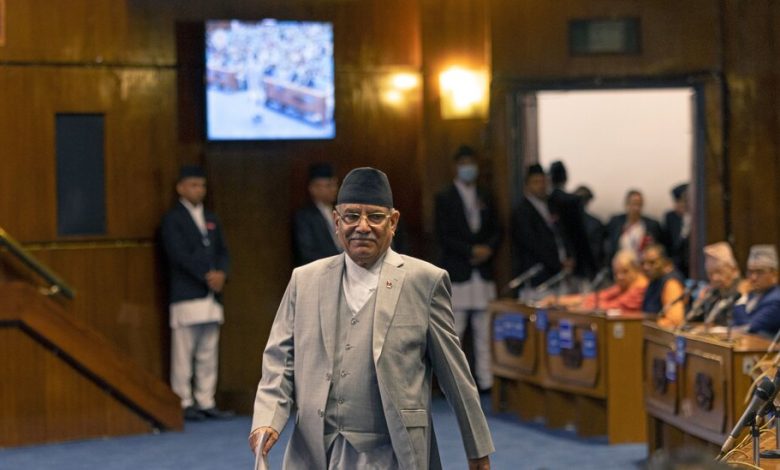Nepal’s Prime Minister Loses Confidence Vote, Adding to the Turmoil of Monsoon Season

Nepal’s prime minister lost a vote of confidence in the country’s Parliament on Friday, throwing the Himalayan country into political disarray as it tries to manage a spate of devastating natural disasters.
Pushpa Kamal Dahal, a guerrilla fighter turned politician, lost control of the government when his coalition partners turned on him after a fractious alliance collapsed.
Friday’s vote of confidence was the fifth Mr. Dahal has faced during his 18 months in office. He became Nepal’s 13th prime minister in 16 years when his current term began in December 2022, but he had led the country twice before, from 2008 to 2009 and from 2016 to 2017.
This revolving door of leaders has left the country of 30 million in a continuous state of political uncertainty, hampering efforts to develop from a largely rural economy that is reliant on remittances from Nepalese citizens working in the Gulf and other wealthier countries.
Nepal also has more immediate problems with a deadly monsoon season. On Friday, the authorities searched for more than 60 people swept away in a landslide, and last week, 15 people died in floods. Hundreds of people have been struggling to find shelter, while remote towns and villages remained cut off after roads and highways were destroyed.
Lawmakers are expected to vote for a new prime minister on Sunday.
Mr. Dahal’s likely successor is K.P. Sharma Oli, the leader of the Communist Party of Nepal (Unified Marxist-Leninist); Mr. Dahal is the leader of the Communist Party of Nepal (Maoist Center).
Also a former prime minister, Mr. Oli orchestrated the breakaway from Mr. Dahal, joining with the Nepali Congress, the largest party in the country and Mr. Dahal’s former coalition partner.
Mr. Dahal, who earned the nickname Prachanda, or the Fierce One, led a decade-long insurgency against the Nepalese monarchy, fighting until the country became a republic in 2008. He was first elected to office after a United Nations-brokered peace agreement, and his political career has been marked by strained alliances ever since.
In recent years, some in Mr. Dahal’s own party have criticized his lavish lifestyle and his growing connections with big business. There is also growing discontent among Nepalese voters, disillusioned by political infighting and power grabs. Once the most popular party, the Maoist Center has had declining support in the last decade.
The political uncertainty has made it more difficult to coordinate a response to the recent natural disasters, experts said.
“Nepali leaders are indifferent and unconcerned on the plight of the common people,” said Vijay Kant Karna, the chairman of Center for Social Innovation and Foreign Policy, a research group in the capital area of Kathmandu.